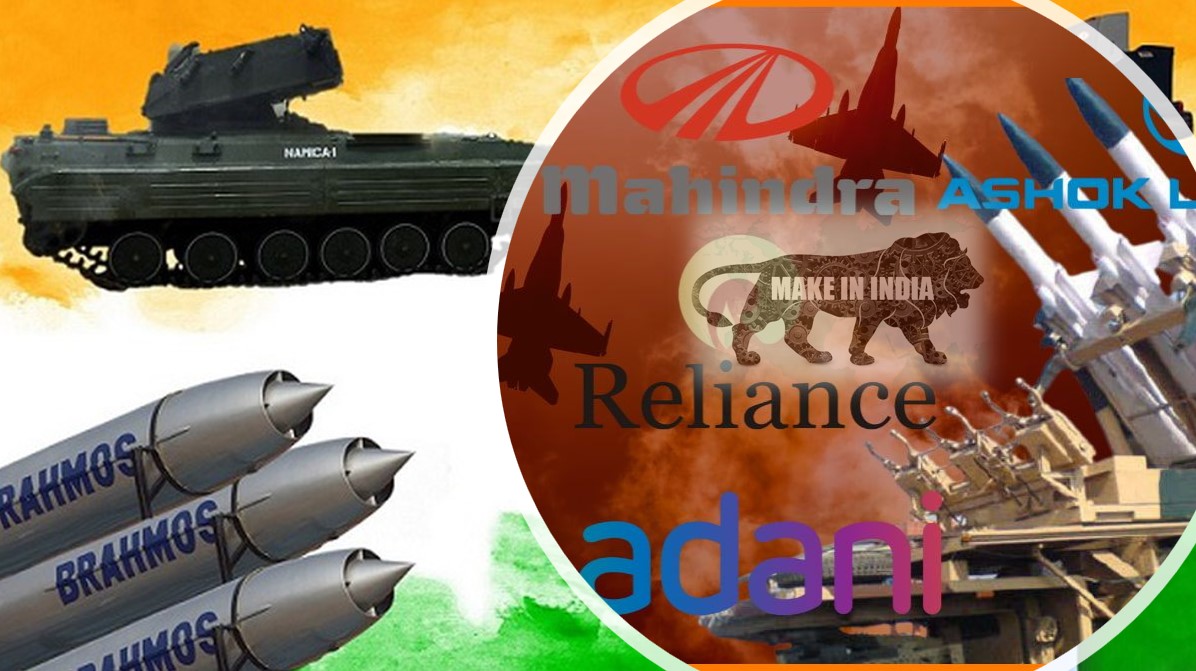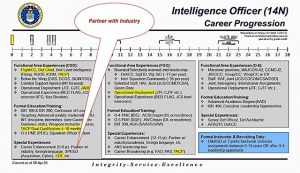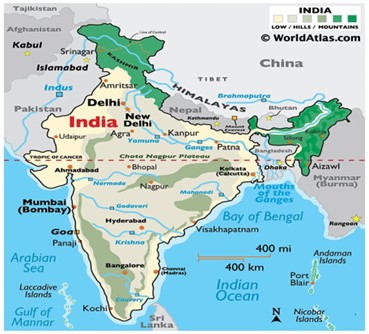
Defence Attaches And Intelligence Agencies: Enabling Defence Exports

In a much-needed policy initiative, the Government of India decided to redeploy military attaches to countries where they can help increase domestic defence exports. This will reduce the number of military officers stationed in countries where the country traditionally imports military equipment. Officials say the officers will focus on Africa, South-East Asia and the Middle East, where they will promote products from India’s private and public sectors. Arms exports play a crucial role in nations’ economic growth, technological advancement, and strategic relationships worldwide.
To facilitate successful defence exports, many governments leverage the expertise of both Defence attaches and intelligence agencies. While Defence attaches serve as ambassadors, forging relationships and promoting defence cooperation, intelligence agencies provide critical insights and risk assessments. However, the roles of Defence attaches and intelligence agencies in enabling defence exports and their contribution to fostering an innovation-based economy have long been ignored by India. Now that the decision to be AtmaNirbhar in its weapon platforms is taken, the role of Defence Attaches to help market them is thenext logical step . For this to be a coherent policy initiative, our external intelligence agency also needs to be tasked to assist the Defence Attaches. Selling armaments abroad is a highly competitive endeavour; this will require a cultural reorientation of both the military officers and our intelligence officials, wherein human resource management must incorporate deputation to the Indian industry as a viable career path.

Defence attaches are vital links between their home country’s defence industries and host nations. First, they help establish and nurture relationships with key officials, military personnel, and defence industry representatives in host countries. These connections foster trust, enhance understanding, and promote defence cooperation, paving the way for defence exports. Second, they help conduct extensive market research in host countries, identifying defence requirements, procurement plans, and potential export opportunities. Third, by analysing local market dynamics, they help defence exporters understand customer needs, adapt products to specific requirements, and align with local industry capabilities, driving innovation in the defence sector.
Defence attaches organise and participate in defence exhibitions, trade shows, and seminars, providing platforms to showcase their home country’s defence capabilities. As a result, they generate awareness, attract investments, and catalyse innovation within their home defence industries by demonstrating cutting-edge technologies and engaging with potential customers. Defence attaches bring their expertise and knowledge of local requirements to facilitate negotiations and secure defence contracts. They can assist defence exporters in navigating procurement processes, understanding local regulations, and addressing cultural nuances. Their presence and support enhance trust and contribute to successful export deals.
The Defence attaches play a crucial role in supporting Small and Medium Enterprises (SMEs) and fostering technology transfer. They can identify opportunities for collaboration between SMEs from their home country and host nations, facilitating partnerships, joint ventures, and technology-sharing agreements. This collaboration promotes innovation, stimulates economic growth, and creates an ecosystem favourable for an innovation-driven defence industry.
Professional intelligence agencies, on the other hand, help with vast resources and networks to gather valuable information on global defence markets. They comprehensively analyse potential export markets, identifying demand, key players and emerging trends. This market intelligence is a necessary aid for defence exporters in making informed decisions, tailoring their products to meet market requirements, and seizing export opportunities. One of the critical roles of intelligence agencies is assessing and mitigating risks associated with defence exports. They evaluate potential customers, partners, and intermediaries, ensuring compliance with export control regulations and safeguarding national security interests. In addition, intelligence agencies can help defence exporters navigate through complex geopolitical environments and proliferation threats while protecting sensitive technologies by providing thorough risk assessments.
Intelligence agencies play a vital role in protecting defence exports from espionage, theft, and unauthorised access. They assist in designing robust security protocols, encryption strategies, and counterintelligence measures to prevent technology leakage and safeguard intellectual property. In addition, through collaboration with defence exporters, intelligence agencies ensure the secure transfer of sensitive defence technologies to trusted partners. Intelligence agencies can provide strategic assessments and policy guidance to defence exporters and policymakers by analysing geopolitical landscapes and emerging security challenges. They help align defence export strategies with national security objectives and international obligations, ensuring that exports contribute to global stability while protecting national interests.
Intelligence agencies and defence attaches can collaborate to enhance market intelligence capabilities. Sharing information and analysis creates a more comprehensive understanding of global defence markets. This collaborative approach enables defence exporters to access a broader data pool, identify emerging trends, and capitalise on new market opportunities. In addition, the synergy between intelligence agencies and Defence attaches strengthens their ability to support defence exports and fosters an environment encouraging innovation.
Intelligence agencies’ insights on geopolitical landscapes and security challenges can inform and augment Defence Attaches’ diplomatic efforts. Armed with this intelligence, defence attaches can engage in targeted defence diplomacy, strategically promoting defence exports and fostering innovation. In addition, they can leverage intelligence assessments to identify potential partner countries, engage in dialogue on defence collaboration, and facilitate technology transfer agreements. This collaboration between intelligence agencies and Defence attaches enhances the effectiveness of defence diplomacy in driving innovation and economic growth.
Modern intelligence agencies should possess extensive knowledge and expertise in emerging technologies and global defence industry trends. By sharing this information with Defence attaches, they enable a proactive approach to identifying technological trends and opportunities for defence exports. Defence attaches can then engage with host nations, highlighting their home country’s technical strengths, promoting collaboration, and facilitating the transfer of advanced defence technologies. This proactive approach encourages innovation, strengthens defence industrial bases, and positions defence exporters at the forefront of technological advancements. In addition, intelligence agencies’ role in risk assessment and mitigation aligns with the responsibilities of Defence attaches. By collaborating closely, they can ensure comprehensive risk management strategies in defence exports. Intelligence agencies provide valuable insights on potential threats and risks, helping defence attaches assess the reliability and trustworthiness of prospective customers and partners. This collaborative approach helps safeguard sensitive technologies, protect national security interests, and maintain export control compliance, fostering an environment of trust and reliability in defence exports.
Intelligence agencies can also support Defence attaches in identifying opportunities for research and development (R&D) cooperation. By assessing host nations’ R&D landscape and technological capabilities, intelligence agencies can provide insights into areas of mutual interest and potential collaboration. Defence attaches can then facilitate partnerships between defence research institutions, universities, and industries, enabling technology exchange, joint projects, and innovation-driven defence exports.
In conclusion, the synergy between intelligence agencies and Defence attaches is pivotal in enabling defence exports and nurturing an innovation economy. Enabling this will require a reorientation of our policy and human resource framework. Indian officialdom still has to understand and internalise that private companies that create IPR are a valuable natural resource that needs to be treasured and guarded. Fostering an innovative economy is essential to generate employment and economic growth and is vital to ensure national security. The traditional understanding of national security linked to only guarding territorial integrity needs to be updated and will require a relook. New policy initiatives must be sensitive to unconventional ideas that break from tradition or challenge our existing ways of thinking and push us out of our psychological comfort zone. Generally, we don’t like things that challenge our habitual ways of working. By nature, people and institutions are highly risk averse, and the political leadership will have to closely monitor and empower the military and intelligence leadership to make these policies successful. Missteps and failures will be part of this change. Fostering an environment that can withstand failure and risk-taking is central to AtmaNirbhar.
Disclaimer
The opinions expressed in this article are the author’s own and do not reflect the views of Chanakya Forum. All information provided in this article including timeliness, completeness, accuracy, suitability or validity of information referenced therein, is the sole responsibility of the author. www.chanakyaforum.com does not assume any responsibility for the same.
Chanakya Forum is now on . Click here to join our channel (@ChanakyaForum) and stay updated with the latest headlines and articles.
Important
We work round the clock to bring you the finest articles and updates from around the world. There is a team that works tirelessly to ensure that you have a seamless reading experience. But all this costs money. Please support us so that we keep doing what we do best. Happy Reading
Support Us





















POST COMMENTS (0)